Text
This year some of my favourite books I read were written by indigenous American authors and I just wanted to shout out a couple that I fell in love with
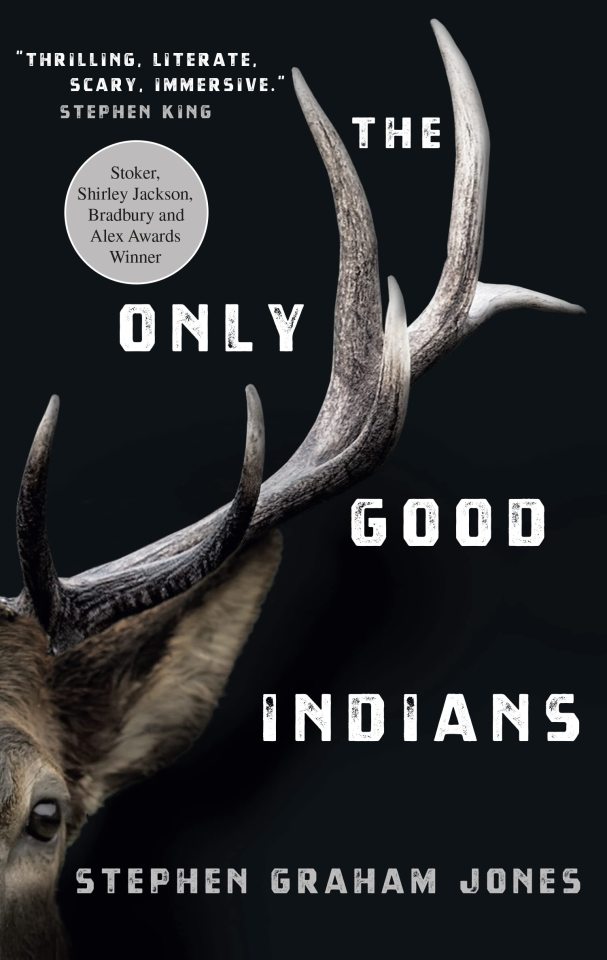
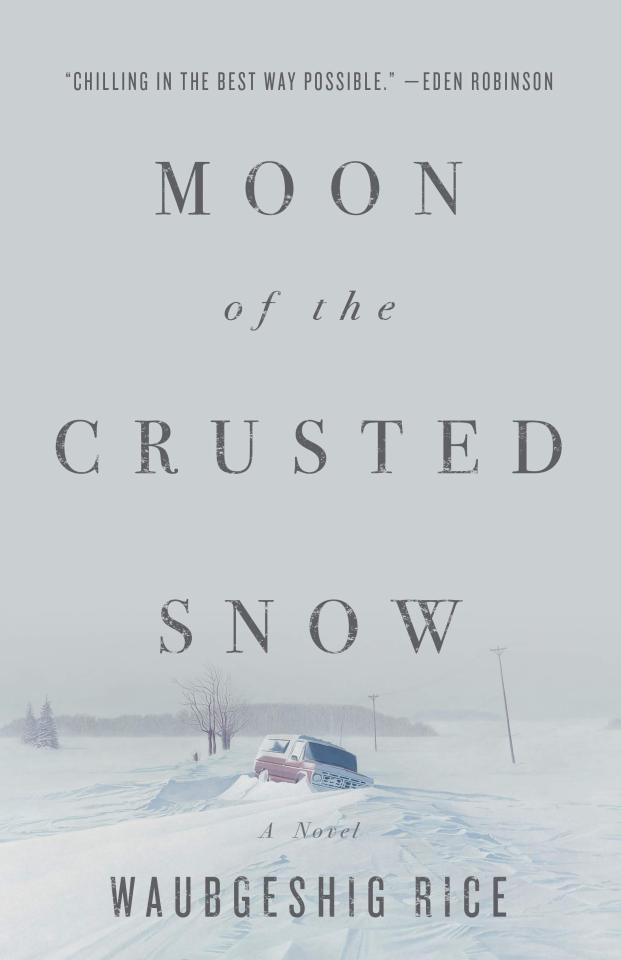

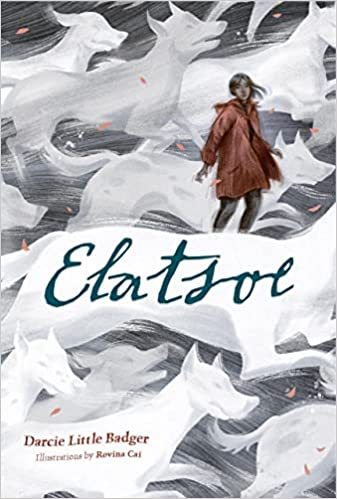
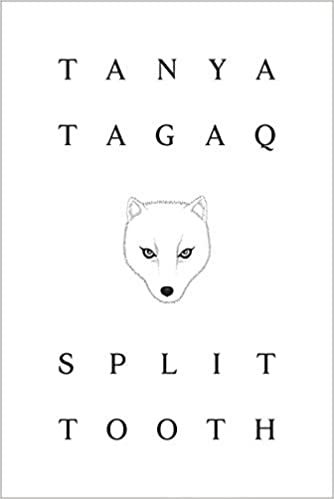
The Only Good Indians by Stephen Graham Jones
Horror being my second most read genre, I did not think books could still get under my skin the way this one did lol. It follows four Blackfoot men who are seemingly being hunted by a vengeful... something... years after a fateful hunting trip that happened just before they went their separate ways. The horror, the dread, the something... pure nightmare fuel 10/10
Moon of the Crusted Snow by Waubgeshig Rice
An apocalyptic novel following an isolated Anishinaabe community in the far north who lose contact with the outside world. When two of their young men return from their college with dire news, they set about planning on how to survive the winter, but when outsiders follow, lines are drawn in the community that might doom them all. This book is all dread all the time, the use of dreams and the inevitability of conflict weighs heavy til the very end. An excellent apocalypse story if you're into that kind of thing.
My Heart is a Chainsaw by Stephen Graham Jones
This book follows Jade, a deeply troubled mixed race teenager with a shitty homelife who's *obsessed* with slasher movies. When she finds evidence that there's a killer running about her soon-to-be gentrified small town, she weaponises that knowledge to predict what's going to happen next. I don't think this book will work for most people, it's a little stream of consciousness, Jade's head is frequently a very difficult place to be in, but by the last page I had so much love for her as a character and the emotional rollercoaster she's on that I had to mention it here.
Elatsoe by Darcie Little Badger
Taking a bit of a left turn but this charming YA murder mystery really stuck with me this year. Elatsoe is a teenage girl living in an America where myths, monsters, and magic are all real every day occurrences. When her cousin dies mysteriously with no witnesses, she decides to do whatever she can, including using her ability to raise the spirits of dead animals, to solve the case. The worldbuilding was just really fun in this one, but the Native American myths and influence were the shining star for me, and the asexual rep was refreshing to see in a YA book too tbh
Split Tooth by Tanya Tagaq
The audiobook, the audiobook, the audiobook!!!! Also the physical book because formatting and illustrations, but the audiobook!!! Tanya Tagaq is an Inuit throat singer, and this novel is a genre blending of 20 years worth of the authors journal entries, poetry, and short stories, that culminates in a truly unique story about a young girl surviving her teenage years in a small tundra town in the 70s. It is sad and beautiful and hard but an experience like nothing else I read this year.
#Ive been meaning to read moon of the crusted snow for forever#and these all sound fantastic#just another five on the reading pile#i promise to get to them#book recs
6K notes
·
View notes
Text
Cuddy - Benjamin Myers
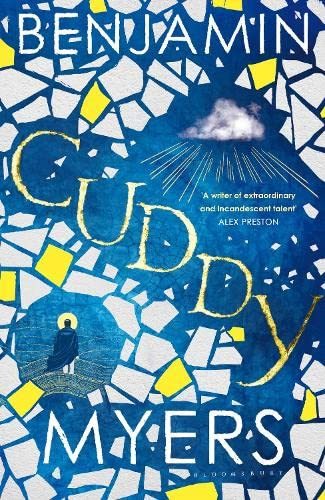
Just a quick review from the archives (although admittedly I didn't read this all that long ago).
Benjamin Myers really blew me away with this one.
I'd expected something good, but the sort of brilliance that came out of this was really above and beyond what I'd thought I'd get.
Cuddy is about Saint Cuthbert. For those of you not in the know, he was a monk who lived on Lindisfarne and was eventually buried where Durham Cathedral stands after being carried around the North East of England by a band of monks for a while. The book is made up of several distinct sections, each focusing on a person who was a part of this history of Saint Cuthbert and Durham. Each section is in a different format, one in play format, another in a sort of poetry.
I was initially curious because of the subject matter, given I am from county Durham, but from the very first page I was completely blindsided by the format of the novel which is so incredibly inventive without sacrificing any comprehension.
There is also a lovely sense of Myers' style throughout the whole thing, which I hadn't expected given his other books are all more or less standard prose (whatever that means).
I'm not sure there is a lot to say about this one besides recommending that you read it, because it's not the content so much as how it is presented to you that makes you feel as though you are growing alongside the legacy of Saint Cuthbert and with the city of Durham as you move through the book.
#books#book review#book recommendations#my essays#benjamin myers#cuddy#i want to call this folk fiction#which is not a genre#but I will create it if its the last thing i do#book recs
1 note
·
View note
Text
I'm quite invested in this side blog I feel like I might move everything to my main before it gets unmanageable but I just know it's going to be a nightmare send help
#thoughts#why is tumblr like this#at least i have maybe three real people followers#so there will be minimal pain
0 notes
Text
The Bee Sting - Paul Murray
So, I am slowly working my way through the Booker Prize shortlist and this is definitely the best so far.

Similar to:
Ironopolis by Glen James Brown
Small Things Like These by Claire Keegan
The Bee Sting is at its heart a family drama. You get a section of the book for each member of the family (parents, brother and sister), before the last section brings them all together.
The style is witty without being laugh-out-loud, and has a sort of conversational tone that pulls you in quickly. The book also escalates the stakes graually, but in such a way that you barely notice it hapenning until you're half way through and realise that the first couple of chapters had barely a hint of the drama that was to come.
Its themes are nothing particularly new, altough they are looked at in an interesting way. Relationships, sexuality, class. The core of the book is no different to the classics, but the way that Murray keeps knocking you back with revelations you almost certainly didn't see coming is wonderful.
There is also a through-line of environmental disaster, and while I think Murray probably does have some stong opinions on global warming, the way he deals with this particular theme acts as a mirror of the family issues we are more explicitly being told about.
The book descends into a bit of a frenzy in the last section, where every POV is happening at once, but at that point you're so invested in the characters that it is almost impossible to stop reading, and the chaos provides a driving momentum.
The ending is definitely the make-or-break point for the book. You will either adore or despise it.
I loved it.
#books#book recommendations#book review#my essays#booker prize#the bee sting#paul murray#look I didn't finish reading the booker shortlist in time#but I still think this should have won because I'm always right
3 notes
·
View notes
Text
The Ladies of Grace Adieu - Susanna Clarke

This is a wonderful little collection of stories set in faerie Britain (the setting of Clarke's book Jonathan Strange & Mr Norrell). There are also a couple of other (not so subtle) nods to other stories many people will be familiar with, mostly fairy tales (and Stardust by Neil Gaiman being a surprising one!).
Susanna Clarke has the rare ability to make any length of story entertaining, somehow using a concept from a 1000+ page novel and using it in short stories without breaking a sweat.
She also really tapped into the universal love of proper fairy tales with this collection, and I was more or less transported to my childhood bedroom with the beautiful folio collection of fairy tales I'd nicked off my parents' bookshelf.
Clarke has such an incredible mastery of language, and it shines through here even more so than her full novels. Every story has a unique tone and use of language and yet is clearly using the same voice that was key in Strange & Norrell.
Not a lot else to say about this collection, other than it is definitely worth reading straight after Strange & Norrell, as I suspect there were even more subtle hints to that story than I picked up. I do also want to take a small moment to point out that these stories are partly so enjoyable BECAUSE of the previous novel, but that is a small part of what makes them so engaging.
Brilliantly fun without sacrificing an ounce of artistry.
2 notes
·
View notes
Note
I was wondering if you accept book review requests
Yes, I do!
My reading schedule is somewhat avante garde (meaning I read about four books at once and can only guess at when I'll finish them) but I have done beta reading in the past and am starting to review advanced copies so it's definitely something I'd be happy to do.
3 notes
·
View notes
Text
The Bee Sting - Paul Murray
So, I am slowly working my way through the Booker Prize shortlist and this is definitely the best so far.

Similar to:
Ironopolis by Glen James Brown
Small Things Like These by Claire Keegan
The Bee Sting is at its heart a family drama. You get a section of the book for each member of the family (parents, brother and sister), before the last section brings them all together.
The style is witty without being laugh-out-loud, and has a sort of conversational tone that pulls you in quickly. The book also escalates the stakes graually, but in such a way that you barely notice it hapenning until you're half way through and realise that the first couple of chapters had barely a hint of the drama that was to come.
Its themes are nothing particularly new, altough they are looked at in an interesting way. Relationships, sexuality, class. The core of the book is no different to the classics, but the way that Murray keeps knocking you back with revelations you almost certainly didn't see coming is wonderful.
There is also a through-line of environmental disaster, and while I think Murray probably does have some stong opinions on global warming, the way he deals with this particular theme acts as a mirror of the family issues we are more explicitly being told about.
The book descends into a bit of a frenzy in the last section, where every POV is happening at once, but at that point you're so invested in the characters that it is almost impossible to stop reading, and the chaos provides a driving momentum.
The ending is definitely the make-or-break point for the book. You will either adore or despise it.
I loved it.
3 notes
·
View notes
Text
The Art of Job Hunting by Anastasia Helena Fernald

Overall an interesting collection.
The collection is a satire on primarily unemployment and the job market, but also some other related stuff - the military, family, nationality.
There are a lot of strong sections in here, and the Q&A job application format works really wonderfully. Fenald has a recognisable voice, and the rhythm and cadance of her work is varied but consistent enough to feel cohesive.
The poems on nationality and foreign-ness are particularly good and fitted well with the story-telling style used in many of the poems.
There is also very clearly a lot of experimentation going into these poems. There is a huge range in the style and the poems that really stood out were the ones which didn't quite blend in with the rest of the collection.
The couple of poems that leant into the absurdism/tried to approach the topic from an unexpected place really broke up the literalism that most of the collection stayed close to.
It's also worth mentioning that the author clearly had a message to put across, and although the focus wasn't exclusively on one topic, the central ideas were portrayed clearly and without spoon-feeding the reader.
It isn't a perfect collection, however.
The core frustration and bitterness of unemployment is not particularly a subtle theme, and at times the "show don't tell" rule may have been ignored a little. There are sections where the message of frustration becomes frustrating in itself - the collection feels cathartic in places but such a barrage of hopelessness does become a little hard to get through in places.
The poems also felt very tonally American, and while this isn't a problem in and of itself, paired with the current-affairs heavy content started to feel a little like it was designed for social media.
The more heavily structured poems also fed into this too, OK Google, Define Job and Résumé Poem are two that felt very much intended to be seen outside of the collection, although this could also just be my personal taste coming through.
The collection does pick up by the end, though, and I think a lot of my frustrations are with the earlier poems which seem to be trying to set a tone, but do so in such a blatant way it can feel as though you are just being told what to think and feel about the topic, rather than being allowed to feel what the authour does through her writing.
Room to improve, and I certainly wouldn't rule out reading more of Fernald's work!
I received an advance review copy for free, and I am leaving this review voluntarily.
#poetry#poetry review#book review#books#this one was an advanced copy btw#had a good time#but definitely hoping for some growth in her work
2 notes
·
View notes
Text
All Quiet On the Western Front was one of the best films I watched last year. It's beautiful and sounds amazing and the acting is great and the editing is super slick and and and......
But it's not really a great adaptation.
Like so very rarely do you get an adaptation of a novel that happens to be so brilliant as a film that it's almost strange for it to at the same time be bad at the adaptation bit.
Usually you get a good film that is a good adaptation (A Clockwork Orange, The Princess Bride, No Country for Old Men, I'm Thinking of Ending Things) or a bad film that is a bad adaptation (Eragon, the Percy Jackson films, Hannibal Rising, The Goldfinch).
You do occasionally get films that are more of an homage rather than a direct adaptation (Trainspotting, Brokeback Mountain) although these tend to be due to the format of the original material not really being suitable for a feature length film.
All Quiet (2022) is none of those things, though. It is, in some ways, incredibly faithful to the book. Certain scenes are almost exactly as they were originally written, and many others were so fitting in tone that the fact they weren't quite ripped straight from the book didn't matter. Many of the more intense combat scenes are beyond what was shown in the book (the book took much more time to explore the non-combat bits of war, though more because it is a book about the consequences of war rather than the unedited horror of violence itself). It's also German, in language and in production. A minor point, but something that had a big impact on my experience watching it, and one of the few things I found to be a big step up from the 1930 film.
These things are all good - an adaptation should stay faithful to tone, if not exact scenes, right? And the 1930 film does already provide a play-by-play adaptation. So perhaps the 2022 version wanted to be a little different.
And it was. Some of the small changes are good, others not so much.
The opening where we follow the bullet riddled uniforms from their owners bodies all the way to the hands of their new owners? Fucking genius.
Paul's death happening moments before the ceasefire? Misguided at best, and a distraction from the heart of the film's message at worst.
But there is something more egregious.
I'm sure if you've read the book or seen the original film you'll have a good idea of what I'm talking about.
Political intrigue is a popular genre. Films, but TV most of all. Think of the most popular shows of the last decade or two. House of Cards, Borgen. Even things like Game of Thrones or The Thick of It. The politics that drive everything are what people enjoy, if you take ratings at their face value.
So why not in All Quiet on the Western Front?
WW1 right? One of the greatest conflicts the world (read Europe, mostly) ever suffered, and so politically complex that its inception is basically a joke at this point. And the armistice. Such a wonderful demonstration of... what exactly?
And that's the problem, isn't it.
The politics that drove the war were so far removed from the people who were truly a part of the war. Erzberger did a good thing. A great thing, sure. But I don't want to care about his journey or whatever bullshit we were handed. And I really, really don't want to be forced into hating that silly caricature of a warmongering general, regardless of who he was meant to represent.
Remarqué never wrote All Quiet as a criticism of the individuals responsible for the first world war, he wrote it as a criticism of war itself and as an homage to the men destroyed by it.
Why, do you think, are we shown Paul and his friends tormenting corporal Himmelstoss? And why are we shown Paul, after months on the front lines, unable to understand the people he left at home?
We are shown that because it makes us understand the essence of war, not as a big, evil, incomprehensible concept, but as the tangible, devastating force that takes a human being and annihilates everything about them but their rawest instincts.
We are shown that, because Remarqué wanted us to understand what the war had done to an entire generation of sons who were expected to pack up and go back home as though they hadn't experienced hell on earth.
So yes. I loved All Quiet on the Western Front (2022) as a film. The soundtrack alone deserves special mention, let alone the cinematography, editing and sound design.
But no. It's not All Quiet on the Western Front. So read the book, if you haven't. And I promise you'll gain quite a bit more.
#all quiet on the western front#film analysis#film#i stand by this so much#the book is so unbelieveably perfect and the film was just too shiny?#like the technical aspects are so well done but it felt like at the expense of telling the actual story
7 notes
·
View notes
Text
Book Recommendations
I have very suddenly developed the urge to recommend people books.
I've not posted a huge amount on here full stop, but very little literature wise. Well, I am actually an obsessive reader, and would very much like to share my obsession a bit.
If you're stuck for something to read, send over a few of your favourite books, or a few that you'd like something similar to and I shall come up with a little list of books I think you'd enjoy.
(Also tempted to do this for films, but it's quite a small blog so I'll see how many people are interested, first.)
#book recommendations#books recs#books#I'm trying to actually write more proper reviews too#so hopefully this blog will actually have some good recommendations anyway
1 note
·
View note
Text
The Bee Sting - Paul Murray
So, I am slowly working my way through the Booker Prize shortlist and this is definitely the best so far.

Similar to:
Ironopolis by Glen James Brown
Small Things Like These by Claire Keegan
The Bee Sting is at its heart a family drama. You get a section of the book for each member of the family (parents, brother and sister), before the last section brings them all together.
The style is witty without being laugh-out-loud, and has a sort of conversational tone that pulls you in quickly. The book also escalates the stakes graually, but in such a way that you barely notice it hapenning until you're half way through and realise that the first couple of chapters had barely a hint of the drama that was to come.
Its themes are nothing particularly new, altough they are looked at in an interesting way. Relationships, sexuality, class. The core of the book is no different to the classics, but the way that Murray keeps knocking you back with revelations you almost certainly didn't see coming is wonderful.
There is also a through-line of environmental disaster, and while I think Murray probably does have some stong opinions on global warming, the way he deals with this particular theme acts as a mirror of the family issues we are more explicitly being told about.
The book descends into a bit of a frenzy in the last section, where every POV is happening at once, but at that point you're so invested in the characters that it is almost impossible to stop reading, and the chaos provides a driving momentum.
The ending is definitely the make-or-break point for the book. You will either adore or despise it.
I loved it.
#book review#books recs#my essays#books#booker prize#no spoilers here#it genuinely made me swear out loud at the end#also an insane amount of foreshadowing that man leaves no detail unsused
3 notes
·
View notes
Text
105 notes
·
View notes
Text
still thinking about great freedom (große freiheit) and its way of looking at intimacy and domesticity and violence and surveillance and voyeurism and crime and madness and masculinity and agency and freedom – the way it does the looking itself is so !!!!! camera!!!!!!!! light and dark!!!!!!!!!!! faces!!!!!!!
it’s still quite rare to see a film these days that is so conscious of its references to queer cinema, rather than trying to build too much on heteronormative film-making structures, it feels like a love-letter to people who created queer films, as much as a story about queer history
the way it defines freedom through the story and characters and through the camera – the film-reel that was filmed by the lead that is possibly lost forever, but we see it, we know it was real, even if in the world itself it may no longer exist (or was possibly never even developed), versus the voyeuristic watching of men cottaging so they can be arrested, the way the men watch each other, versus the way guards watch them
the different ways people make choices in extremely limiting, violent places (prison, anti-queer society), never leave your apartment for fear of getting arrested, go on dates in prison by way of punishment from the guards, protect each other and end up in solitary, falsely admit to rape so that another man can be released, go back to prison to help your friend with his addiction, etc.
violence and kindness going hand in hand (punished for covering the concentration camp tattoo with “stolen” homemade tattoo gear, punished for holding a crying, grieving man, punished for protecting another gay man from violence, not being allowed to hear the goodbye letter from the man you love + not developing the film reel of the two of you (but the film allowing us to see and hear both), allowing yourself to be judged a rapist to protect another man, committing a “crime” so that you can go back in and help your friend, etcetc)
the times the lead gets pushed into the complete silent blackness of solitary, versus his voluntarily being led into the underground cruising area beneath a gay bar and then the way he leaves that place, literally leaves “great freedom” in order to consciously get arrested again, because of the life he built and the person to whom he has responsibilities
and, yes, to be so simplistic, but “be gay do crimes,” that ending was gorgeous
60 notes
·
View notes
Text
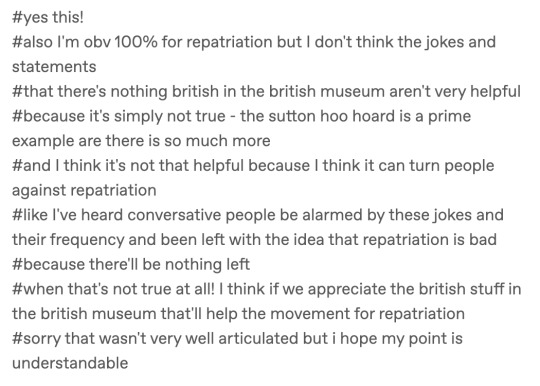
This also!!! There is literally no argument for keeping this stuff AND returning it would mean the british museum could show off all the cool, actually british things it has.
“The entire British museum is an active crime scene” - John Oliver

152K notes
·
View notes
Text
So the bear is obviously so brilliant because it treats all of its characters like human beings which is also exactly why the only plotline that didn't work this season was Claire. It's impossible to care about her because her whole purpose is as a crutch for Carmy. Like the contrast between the Christmas episode and Claire's scenes is so striking it's almost ridiculous and I can honestly say it was the only thing I really wish they'd cut or changed completely.
#the bear#the bear s2#the bear season 2#tv review#This show is really brilliant but they literally made this awful Mary Sue for no reason
8 notes
·
View notes
Text
The Memory of Animals

Similar to:
The Seven Moons of Maali Almeida by Shehan Karunatilaka
10 Minutes and 38 Seconds in This Strange World by Elif Shafak
The History of Bees by Maja Lunde
So this is the first truly COVID novel I've read and I was actually blown away by how well the subject was handled. It's not explicitly about COVID, but it's about as close as you can get while still changing things up to suit the plot.
It's about a marine biologist who has volunteered to be part of a vaccine trial for the so-called "dropsy" virus which is causing a global pandemic. Things happen and she and a few of the other subjects in the trial end up alone in the medical facility, waiting on someone to come and save them.
Not to give too much away, the novel is split into three bits of writing - her in the present, her memories of her life and a series of letters which she is writing to H (who you very quickly find out is an octupus she consideres to be her friend).
Quality wise the book is brilliant. The three sections being interspersed give a lovely sense of things moving on while still being slow enough for you to think through everything you're being told. All of the characters are pretty well filled out too, which is something I have an admittedly high standard for.
The plot itself is interesting, and you really do get pulled into the world you're being told about. Yes there are some unsubtle parallels to COVID, but basically everything is ramped up to 11. You also get these beautiful sections where the memories of the main character break up the less pleasant present.
The main character gets gradually padded out until you have this whole person in front of you and it's almost impossible to work out at what point you started to understand her - you just know at one point you did.
There are also a few moments where you realise something for the first time. Many of those points are just little throw-away lines that let you put two and two together. There is only one big reveal, though, and it is so brilliantly integrated into the prose that I'm not really sure I even understood what it meant in the context until I took a second to stop and think. Really wonderfully done, and it suited the more reflective nature of the novel.
The ending wasn't exactly perfect, but I did cry so it's clearly not bad at all, and was actually quite hopeful despite how grim a lot of the novel ended up being.
Overall probably a 9/10.
I do see myself changing that over time, but I also think I would still love it on re-reading so I'm not sure where i stand with this one quite yet.
#book recommendations#book recs#literary criticism#literature#my essays#books#I did also read the whole thing in a single sitting which I probably should have mentioned#It was really good I did actually cry btw#book review
1 note
·
View note
Text
Book Recommendations
I have very suddenly developed the urge to recommend people books.
I've not posted a huge amount on here full stop, but very little literature wise. Well, I am actually an obsessive reader, and would very much like to share my obsession a bit.
If you're stuck for something to read, send over a few of your favourite books, or a few that you'd like something similar to and I shall come up with a little list of books I think you'd enjoy.
(Also tempted to do this for films, but it's quite a small blog so I'll see how many people are interested, first.)
#book rec list#book recommendations#books recs#book rec asks#literature#books#will anyone see this? probs no but we can hope!!
1 note
·
View note